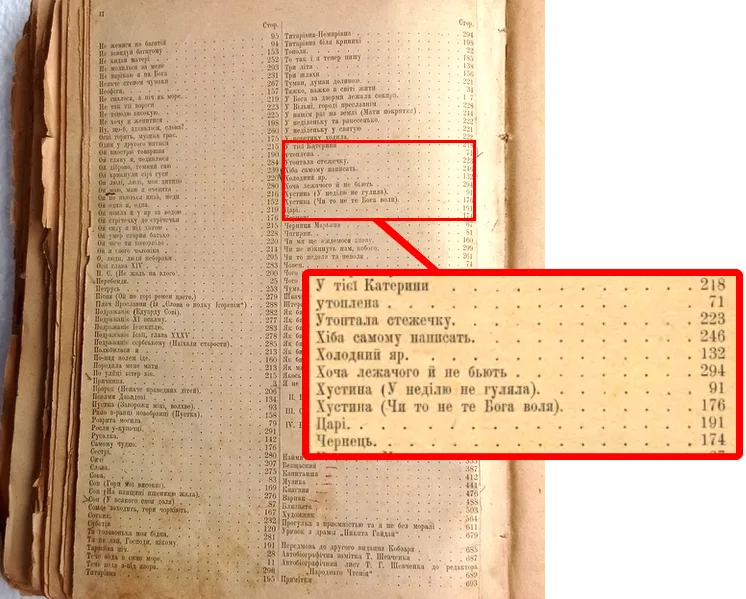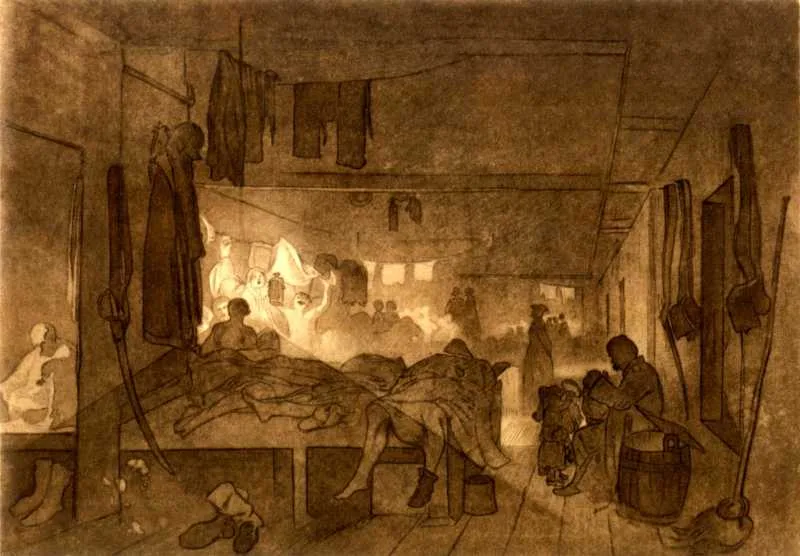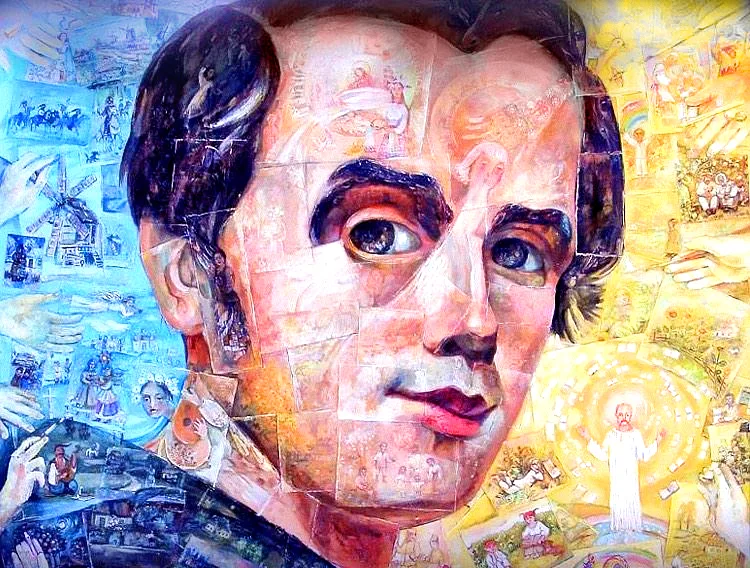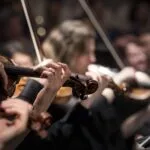A poem allegedly written by Taras Shevchenko is being circulated on Russian-language blogs and forums, which not only insults the Ukrainian people, but also contains humiliating national nicknames “Khokhol”, “Jew” and “Lakh”. We checked whether this poem belongs to a Ukrainian poet.
About ten years ago in RuNet it became spread allegedly previously banned poem by Taras Shevchenko “Khokhly”. First in Russian, and later translated into Ukrainian:
"A crest will remain a Ukrainian
At least let him go to Europe.
Where you need to act with your mind,
It only strains the ass.
And that’s why in Rus'
Bequeathed already by Monomakh:
"God forbid contact
With three - a Jew, a Ukrainian and a Lyakh."
The Jew is cunning, although he is blind,
A arrogant Lyakh is worse than a b...
The Little Russian will eat bread with you
And then he’ll shit in your soup.”
(“Khokhly”, T. G. Shevchenko, 1851)
"Khokhol will lose his khokhol,
You want to let him go to Europe.
You need to use your mind,
It only strains the butt.
And for this reason in Russia
It was already commanded by Monomakh:
“God forbid!
Three - the Jew, the Ukrainian and the Poles.”
Approachable liquid, even if it is sticky,
The swaggering Pole is the proudest one,
Little Russian will eat bread with you
And he’ll immediately shit in your soup.”
Hundreds of Russian speakers blogs And posts This poem is being quoted on social networks, especially against the backdrop of the escalating conflict between Russia and Ukraine.
Citing Shevchenko’s poem, the authors of the posts often refer for the same collection of his works: “The Complete Works of T. G. Shevchenko”, 1914, published by L. M. Rotenberg. Turning to pages Given the contents of this collection, it is easy to verify that the poem “Khokhly” is not in it.

This poem, supposedly written in 1851, is not in the six-volume collection works of Shevchenko. In addition, from 1850 to 1857 Shevchenko was in exile in the Novopetrovsky fortification, where by decree of Emperor Nicholas I he was forbidden write and draw. Shevchenko received punishment for revolutionary poems from the handwritten collection “Three Years,” the texts of which were found during a search among members of the Cyril and Methodius Brotherhood. The participants of this organization were interested in the development of Slavic peoples, in particular the Ukrainian, and were arrested in 1846 on charges of creating a political organization.
From report Count Alexei Orlov, head of the Third Department - the highest body of the political police of the Russian Empire - it is clear that Shevchenko was convicted of glorifying Ukraine and its people and “Ukrainophilism”: “Shevchenko wrote poems in the Little Russian language of the most outrageous content. In them, he either expressed lamentation about the imaginary enslavement and misfortunes of Ukraine, or proclaimed the glory of the hetman’s rule and the former freedom of the Cossacks, or with incredible audacity he poured out slander and bile on the persons of the imperial house, forgetting in them his personal benefactors. In addition to the fact that everything forbidden captivates youth and people with weak character, Shevchenko acquired among his friends the fame of a significant Little Russian writer, and therefore his poems are doubly harmful and dangerous. With favorite poems in Little Russia thoughts could be sown and subsequently take root about the imaginary bliss of the times of the hetman, about the happiness of returning these times and about the possibility of Ukraine existing as a separate state.”
According to the verdict of the Third Section, Shevchenko was sent as a soldier to the Orenburg Corps, since conscription service was then a common punishment. In addition to this, Shevchenko prohibited draw and write: “The artist Shevchenko, for composing outrageous and extremely daring poems, as gifted with a strong physique, should be assigned as a private in the Orenburg separate corps with the right to serve, instructing his superiors to have the strictest supervision so that under no circumstances could he produce outrageous and libelous works.”
IN complete works Shevchenko, a gap is visible from 1850 to 1857. Either he really did not write poetry in exile, or these works have not survived to this day. From Shevchenko’s letters during that period it is clear that he missed Ukraine and his fellow countrymen. For example, in 1852, in a letter to the philologist and researcher of literature of Little Russia Osip Bodyansky, Shevchenko writes: “I thought and thought, and came up with this: spend a little money for the sake of the prisoner and send me the chronicle Konissky or Wieliczka, I will thank you very much. Since the time of my exile, I have not read a single letter about our poor Little Russia, and what I knew about its past before, I quickly forget even a little, and your gift will be a true joy for me.” It is unlikely that a poet who describes his homeland with such warmth during exile would write an offensive poem about its people.

The fact that Shevchenko’s poem is a fake is also indicated by the confusion in the versions of its origin. The author of one of the earliest mentions of the poem first writes, that it was written by Shevchenko in 1871, that is, ten years after the poet’s death, and in the entry made by the same user a year later - that in 1851.
Some users joke claim, that this poem was redone from Pushkin’s poem “Rusnia will remain Rusnia,” probably to show how easy it is to rewrite this verse for the purpose of denigrating any people. Many bow down to the fact that the unknown author took an excerpt from the work of Gabriel Derzhavin as the basis for the fake "Nobleman" (1794):
“A donkey will remain a donkey, Although shower him with stars; Where should one act with the mind, He just flaps his ears.”
In 2007 in LiveJournal appeared an intermediate version of Shevchenko’s poem, where in Derzhavin’s lines the word “donkey” was replaced by “crest”.
Many users And fact checkers, refuting the authorship of Shevchenko, believe that the poem was written by the modern poet Alexander Noshchenko, who published it on the website “Stihi.ru” in 2009. According to them, the page is now unavailable, and no archived versions have been preserved. Users as proof lead Noshchenko’s words without indicating the source (spelling and punctuation preserved): “On the issue of authorship; I wrote it as a cartoon - a cruel joke, the time of writing - before 2009, published in 2009 here on the site, I am a Russian and a purebred, but during an information war any material can be used as a weapon. I was asked to publish this verse again to refute the fake that has been circulating for more than 2 years under the authorship of T.G. Shevchenko. “I am not at all ashamed of this evil cartoon, because it was a response to ardent Svidomites - nationalists who, 6 years later, with the support of the United States, came to power in our country and destroyed my beloved Motherland as a state.”
IN archived version In the list of Noshchenko’s poems for 2009, the work “Khokhly” is not listed, and the theme of the author’s work in those days was completely different: religious and love lyrics. According to the Internet Archive, in April 2014 and in August 2016 years, Noshchenko published poems with the title “A crest will remain a Ukrainian,” which were later deleted. In 2017, he changed his username to Alex Nosenko and added to your profile an image with the text of a poem and an inscription over the portrait of Shevchenko “Fake author Noshchenko.” Now on Alex Nosenko’s page there is only a poem with an identical title, published March 27, 2022, the text of which coincides with the widespread poem by Shevchenko. It is impossible to compare it with earlier versions on Stikhi.ru, since Noshchenko’s publications for 2009, 2014 and 2016 have not been preserved.
In any case, no matter who the author of this poem was, we can say with confidence that Taras Shevchenko did not write these lines offensive to his people.
Post image: Facebook
Fake
Read on the topic:
- About Shevchenko’s relations with representatives of high society
- Arthive: Artist Taras Shevchenko. Paintings and drawings
- Pictorial sketches during the Aral expedition of 1848–1849
- KiRillo-Methodian Society
If you find a spelling or grammatical error, please let us know by highlighting the error text and clicking Ctrl+Enter.






